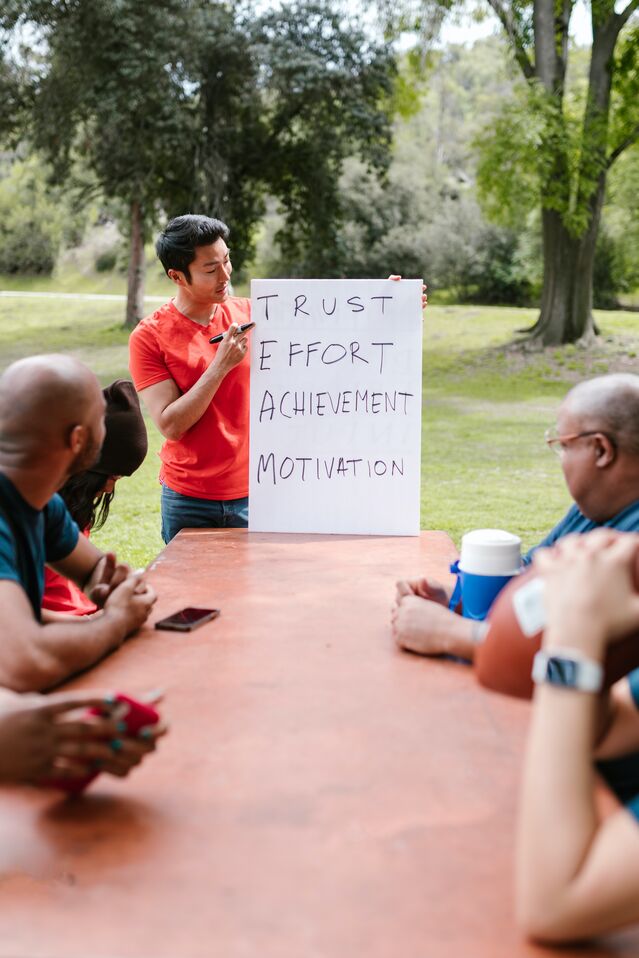Key points
- Trust allows our numerous interdependent relationships to function smoothly.
- In a recent survey, 40 percent said they have confidence in journalists and business leaders to act in the public’s best interests.
- While medical professionals got a brief trust boost at the pandemic’s outset, they are now less trusted than in pre-pandemic times.

We are in an era of an unprecedented trust deficit. A recently released survey finds that trust in scientists, journalists, business leaders, and elected officials is plummeting. While medical professionals got a brief trust boost at the pandemic’s outset, they are now less trusted than in pre-pandemic times. Only 29 percent of those surveyed have a great deal of confidence in medical scientists to act in the best interests of the public, while just 40 percent say they have any form of confidence in journalists and business leaders to act in the public’s best interests.
Trust Versus Trustworthy
Trust allows our numerous interdependent relationships to function smoothly. It seems that many in the scientific, business, journalist and government fields are failing in the important task of building trust into their existing relationships. So maybe it is time for a different focus. Maybe the work is to be seen as trustworthy even by those with whom we do not yet have a relationship.
Some may question the logic of raising the bar when so many are unable to meet current standards. After all, having a trusting relationship with those we currently interact with is pragmatic. It is a smoothing mechanism to allow the existing relationship to operate with minimal stress. Nobody would doubt its utility, yet so many are operating without it.

But seeking to be seen as trustworthy by those we have yet to meet is how we will reverse the trust deficit. It will allow us to engage in long-term, meaningful work in a turbulent and unpredictable environment. It is what will convince those parties not currently known to us, but who may hold the resources that we will require down the road to sustain our positioning.
Charles Sabel defines trust as “the mutual confidence that no party to an exchange will exploit another’s vulnerabilities.” Leading management scholar Jay Barney has defined trustworthiness as “the attribute of being worthy of the trust of others in not exploiting any adverse selection, moral hazard, hold-up, or other exchange vulnerability.” The sort of strong-type trustworthiness reflects the values, principles, and standards that we will bring to any social exchange, reflecting our history, culture, and personal philosophy.

Look to the Future
In the business world, trustworthiness is only viewed as valuable to the extent that it proves to be a source of competitive advantage for a company. Under conventional business thinking, as long as the cost of developing and maintaining trustworthiness, plus the cost of discovering trustworthy exchange partners, was less than the cost of relying on or erecting social or economic governance devices, it was a worthwhile trait. Why? Because those firms which had the advantage of being in a strong-form trust relationship enjoyed a cost advantage over those in a semi-strong trust relationship. Crudely put, it is cheaper to do business between trustworthy parties.
We need to depart from this reductionist view. It is simply inaccurate to believe that the only reason to develop a trusting relationship in our work is to achieve cost savings. Work motivated primarily by efficiency will never be meaningful. Our focus should be on acting with purpose to attract potential future partners with whom we can enjoy a transformative relationship – that is, folks who are committed like we are to enacting a more hopeful future.
Being seen as trustworthy by those they have yet to meet is the radical path through which business, scientific, government, and media leaders might re-earn their seat at the table of influence. It is our best hope for emerging from this crisis well-prepared for the next. We need to lead and shape the world that we want. We need not be passive and wait for other trustworthy parties to enter our orbit. Instead, we internalize the trait of trustworthiness, then go out into the world and build connections.





